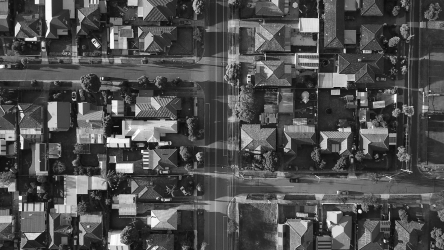By Leif Helland
Originally from San Antonio, Texas, Michael Ray now enjoys the coast of St. Petersburg, but not without experiencing the rising cost of homeowner fees.
The 26-year-old man has resided at Itopia Private Residence for the past three years, a condominium just walking distance from Derby Lane.
The condominium is currently in the process of renovating the property, but that means the residents must pay for it through Condominium Owner Association fees.
According to Ray, his COA fees rose from a little under $500 to $750 a month. Ray also said that it could potentially increase another $300 to $350, possibly totaling $1,100 a month to fund the reserve research funding.
Ray said that because the COA doesn’t have reserve funds, residents have to cover the cost of needed repairs through extra fees.
“Usually they call upon it, the residents with an assessment, which is an extra fee to fund the project, and this one will be spread out over quite a bit,” Ray said. “It’s quite a big renovation, so it’s going to be spread out over 15 years at about an extra 300 or so dollars a month for me specifically because my unit size.”
In 2021, a Miami condo collapsed, killing 89 people and resulting in the creation of Florida laws where homeowners association’s and COA’s have routine checks for reserve research.
This increases fees for homeowners from their neighborhood associations to fund the research; an issue that’s been occurring for many Tampa Bay residents.
“It’s not just us,” Ray said. “I know it’s a lot of places around the area where it’s jumped up because of new insurance requirements, insurance fees [and] there’s been a lot more inspections required, getting buildings up to code.”
Ray said he witnessed a few nearby residents selling their homes, which he believed was well under market value. Some of these residents were retired people who were living on a fixed income and couldn’t afford to pay the rising fees, Ray said.
Since July 2024, home prices have taken a dip, decreasing to six percent since last year. According to Redfin, there’s also a difference of 1,409 homes being sold in comparison to the 1,554 sold in 2024.
Now, less people are purchasing homes due to broader economic concerns that have been put in place.
A professor of economics at the University of South Florida, Michael Snipes, said that the economy is in a cooling period from a robust post-covid boom.
“People just aren’t in the market for buying houses anymore,” Snipes said. “And so, if we have people kind of stepping out of the market and not buying new homes [and] not buying pre-existing homes, that’s something that’s going to put downward pressure on prices.”
This downward pressure comes at a cost, especially after this year’s economic policies affected home prices. Snipes said future home sale trends aren’t likely to improve.
Based on the lack of manufacturing job growth, which affects the building of homes and economic policies that were put in place at the beginning of the year, this trend is unlikely to reverse any time soon.
“And if manufacturing and the job numbers keep going the way they are, then there’s really a whole lot of expectation, at least I would think, that the economy is going to recover anytime soon,” Snipes said. “Some of the impacts of some of the policies that were put into place, you know, back in January and February, now we’re starting to see those effects and cost of living is going up. Well, that’s going to make it harder for people to afford everything.”
The housing market is in a position that puts homeowners and renters in an unpredictable situation.
As far as this will change anytime soon, it is still too early to tell, as economic policies don’t typically see consumer effects until months after they are implemented. The exception being interest rates, as those may have quicker effects than other economic policies.
The Federal Reserve is planning to cut interest rates by 25 basis points, according to a Fox Business article released in early September. This could potentially see mortgage rates coming down, making it easier for buyers to borrow money through loans to purchase homes.
“So, if the Federal Reserve decreases interest rates, then that’s going to make borrowing less expensive,” Snipes said. “And if borrowing is less expensive for banks, they can offer better rates to their customers and mortgages being a form of a loan. If they were to lower the core interest rate, probably you would start to see mortgage rates start to come down.”
